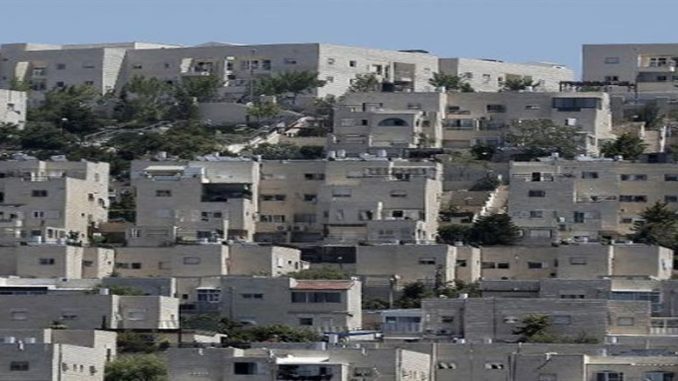
Reports emerged from Israeli media on Thursday alleging that the settlement home of an ultra right-wing Israeli lawmaker, who had a significant role in pushing the recently passed “Regularization” law, was likely built on privately-owned Palestinian land in the northwern occupied West Bank settlement of Qedumim, in the Qalqiliya district.
The house, belonging to deputy speaker of Israel’s parliament Bezalel Smotrich of the right-wing Jewish Home party, stands just on the edge of Israeli designate “state lands” in the settlement, and falls on what is likely privately-owned Palestinian land, Israeli daily Haaretz reported.
However, as a result of the the contested outpost “Regularization bill” — which according to Haaretz was being pushed by a number of Israeli MK’s, including Smotrich — Smotrich’s house will likely be retroactively legalized.
The bill granted official Israeli governmental recognition to more than a dozen illegal settlement outposts in the occupied West Bank established on private Palestinian lands, so long as they were built in “good faith” — without knowledge that the land upon which it was built was privately owned by Palestinians.
If “good faith” can be proved, the settlement outposts and homes could be officially recognized by Israel pending minimal proof of governmental support in its establishment and some form of compensation to the Palestinian landowners.
As it stands, the law would affect the status of 16 outposts — including Qedumim — although Israeli media reports indicated that more could be included in the future. Critics have strongly decried the legislation, highlighting that it could be another step bringing Israel closer to the annexation of the West Bank.
According to Haaretz and the Times of Israel, historically, Palestinians in what is now the occupied West Bank purchased rights to land by cultivating it.
“Aerial photographs in the 1970s, the 1990s and the early 2000s show that as opposed to non-arable, rocky land that was declared state land, the land on which the buildings in question were built was cultivated. Aerial photos show trees in the area until 2002. In 2004, construction seems to have started there,” Haaretz said of the area where Smotrich’s home is located.
In 2012, Haaretz added, Israeli civil administration officials embarked on a mapping project across the Palestinian territory in order to “precisely pinpoint state lands as opposed to privately owned land, so the state could realize its rights on the lands it owns, while the private lands would remain in private hands.”
According to the civil administration’s finding, a number of homes, including Smotrich’s, were built outside the declared state lands and in breach of the settlement’s master plan.
A spokesperson from the civil administration was not immediately available for comment.
Haaretz quoted Smotrich’s office’s response to the reports as saying “Things were done as required. The only people who are in a conflict of interest are journalists who try to represent the Palestinians to evacuate Jews from their homes, but in this case of self-hatred, no regularization law will help. As I have done up to now, I will continue to do – I will do all I can to protect settlement and continue to develop it as a direct continuation of the Zionist vision.”
Between 500,000 and 600,000 Israeli settlers reside in illegal settlements scattered across the occupied West Bank, including East Jerusalem, in contravention with international law.
While members of the international community have rested the solution to the Israeli-Palestinian conflict on the discontinuation of illegal Israeli settlements and the establishment of a two-state solution, Israeli leaders have instead shifted further to the right, with more than 50 percent of the ministers in the current Israeli government publicly stating their opposition to a Palestinian state.
Since the beginning of 2017 and the election of US President Donald Trump, Israeli Prime Minister Benjamin Netanyahu has fast-tracked settlement construction and approved thousands of more settler housing units, despite routine condemnation from the international community.



